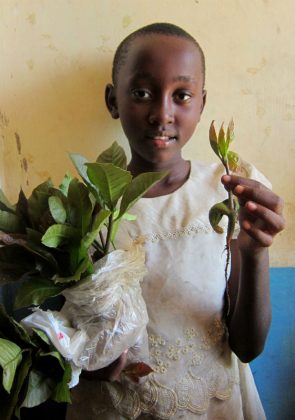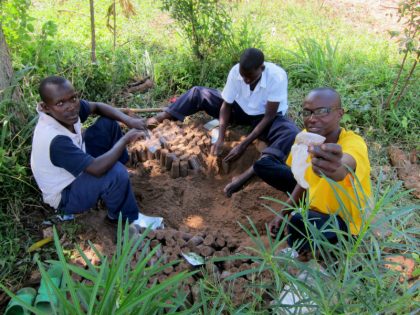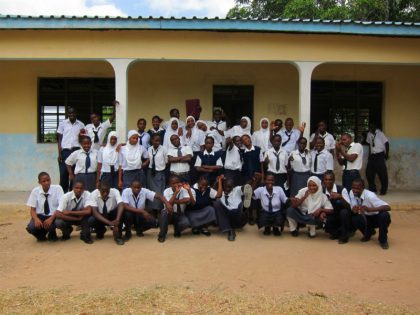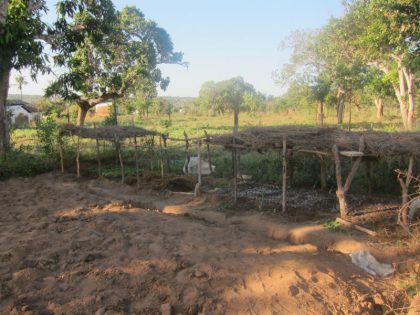 Location
Location
Perani Village, Msambweni District, Kwale County, Coast Province, Kenya
Community Description
Perani is a small rural village nestled on the southern coast of Kenya approximately 6 km away from Lunga Lunga, the border town of Kenya and Tanzania. The village is located 2 hours south of Mombasa on the tarmac road.
Perani is a remote village of approximately 4,000 people from a diverse collection of tribes such as the Digo, Duruma, Kamba, Kikuyu, and Giriama.
About 98% of the Perani population depends on planting beans and maize once a year to support their household for the entire year. The average income of a family in Perani is close to $20 a month. Impoverished, a huge portion of the community cannot afford school for their children.
This coastal area only receives two seasons of rain, the longer rains from April to July and the unsustainable shorter rains from October to November.
 In the blistering sun, water supply is used at an astonishing rate and finished in a couple of weeks. Water is fetched from a small dirty river, small boreholes, wells up to 5 kilometers away, or from the limited rain catchment systems around the village. Constant saltwater contamination limits the drinking water supply. Every day, women make several trips, tying 10-liter jerry cans, which weigh over 30 lbs, on their backs.
In the blistering sun, water supply is used at an astonishing rate and finished in a couple of weeks. Water is fetched from a small dirty river, small boreholes, wells up to 5 kilometers away, or from the limited rain catchment systems around the village. Constant saltwater contamination limits the drinking water supply. Every day, women make several trips, tying 10-liter jerry cans, which weigh over 30 lbs, on their backs.
Perani consistently has shortages of water that may last for weeks at a time.
Some of the problems faced are that farmers are unable to grow crops, students are unable to go to school because their clothes are not clean, and people become more prone to sickness from lack of hygiene.
Unfortunately over two-thirds of the households in Perani cannot afford effective rain catchment systems to take advantage of the seasonal rain, so an immense amount of water goes to waste. Most of the houses in Perani are straw huts and lack the metal sheet roofing for rain catchment systems.
 Project Description
Project Description
This project is to provide water for the Perani Primary School by running a water line from the community water supply to the school.
A 1-meter deep trench will be excavated, and piping will be run a distance of 100 meters from the main water line at Lunga Lung. A tap will then be installed.
Permission has been obtained to dig in the neighbor’s land for a small fee. A certified plumber will then install a tap and buy a permit for water use.
Water Charity funds will be used to purchase the materials and pay for skilled labor.
The community will help deliver all materials, assist those doing the construction, supervise the tap, and pay for the permit. The project is expected to finish in less than two weeks.
 The school will make available water to local neighbors at a cheap price of 10-20 shillings for 10-liter jerry cans.
The school will make available water to local neighbors at a cheap price of 10-20 shillings for 10-liter jerry cans.
The water line will encourage the school and local farms to start healthy crops that need more water, such as spinach, kale, local greens, sweet potatoes, and pineapple. Also, the school will expand the tree-nursery and build washing stations for the toilets.
Project Impact
300 people will benefit from the project.
Peace Corps Volunteer Directing Project
Jessica May-San Yu
Comments
This project will serve the water needs of the school and local neighbors before the dry season starts at the end of November.
Jessica previously completed the Perani Secondary School Rainwater Catchment System Project – Kenya.
Dollar Amount of Project
$350.00
Donations Collected to Date
$350.00
Dollar Amount Needed
$0.00 – This project has been fully funded in the name of Susan Ellen Braun with love from her family in Ontario, Canada.
We encourage others to continue to donate using the Donate button below, and we will notify Peace Corps Volunteer Jessica May-San Yu of your donation. Additional funds will be used to fund the next project by Jessica and/or those of other PCVs in the country of service.